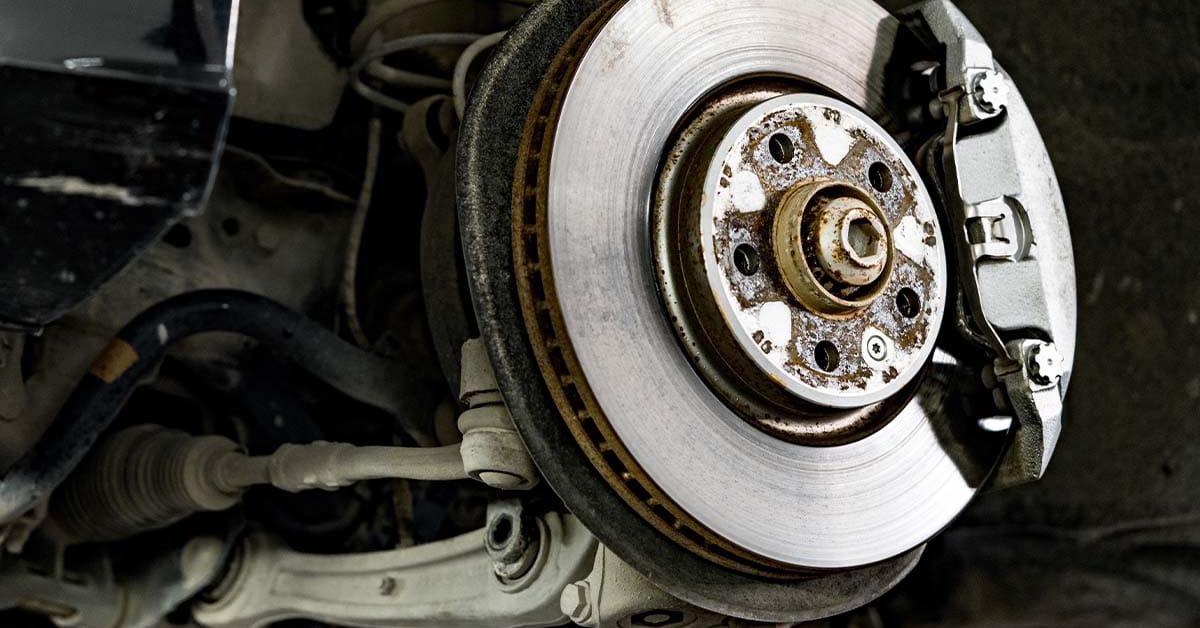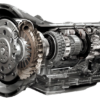DOES TOYOTA REALLY MAKE THE MOST RELIABLE ENGINES?
Does Toyota Really Make the Most Reliable Engines? A Deep Dive into Toyota’s Reputation for Durability

When it comes to automotive engineering, Toyota is a name synonymous with reliability and longevity. For decades, the Japanese automaker has built a global reputation for producing vehicles that stand the test of time. Central to this reputation is the belief that Toyota manufactures some of the most reliable engines in the industry. Car enthusiasts, owners, and even mechanics often tout Toyota’s engines as legendary for their durability, low maintenance costs, and ability to keep running for hundreds of thousands of miles.
But does Toyota really make the most reliable engines? To answer this question, we must delve into the key factors behind Toyota’s engineering practices, examine data and studies on vehicle longevity, and explore real-world testimonials from drivers and mechanics alike.
The Core of Toyota’s Engineering Philosophy: “Kaizen” and “Jidoka”
At the heart of Toyota’s success in engine reliability is its manufacturing philosophy, rooted in the principles of Kaizen and Jidoka.
1. Kaizen (Continuous Improvement)
Kaizen translates to “continuous improvement.” In the context of automotive manufacturing, it means that Toyota engineers and factory workers are always looking for ways to improve every step of the production process, no matter how small. This meticulous attention to detail ensures that Toyota engines are designed and built with long-term reliability in mind. Over time, these incremental improvements result in more durable and efficient engines.
2. Jidoka (Automation with a Human Touch)
Jidoka refers to the idea that machines and humans work together to identify and prevent defects early in the manufacturing process. If a defect is found, production is stopped immediately to correct the issue. This system helps Toyota maintain extremely high standards of quality control, which is one reason why its engines are considered more reliable than those of many competitors.
Toyota’s Track Record for Engine Reliability: Data and Studies
When it comes to hard data, Toyota’s reputation for building reliable engines is well-supported. Several independent studies and surveys consistently rank Toyota at or near the top for vehicle and engine reliability.
1. J.D. Power Vehicle Dependability Study
The J.D. Power Vehicle Dependability Study, one of the most trusted sources in the automotive industry, measures long-term vehicle reliability by looking at problems experienced by original owners of 3-year-old vehicles over a 12-month period. In its 2023 study, Toyota ranked highly across several categories, particularly in the dependability of its engines and powertrains. Toyota’s Lexus luxury division took the top spot in overall dependability, but the parent brand itself consistently ranks among the top five.
2. Consumer Reports
In addition to J.D. Power, Consumer Reports regularly ranks Toyota as one of the most reliable car manufacturers. In their 2023 reliability survey, Toyota was ranked second only to Lexus, reinforcing the view that Toyota’s engines—and the vehicles they power—are among the best in the industry. The survey also highlighted that Toyota models experience fewer engine problems than many competitors, cementing its position as a brand known for reliability.
3. Long-Term Durability Studies
Several long-term durability studies have shown that Toyota vehicles often exceed 200,000 miles without major engine repairs. A 2020 study by iSeeCars, a research firm that analyzes used vehicle data, revealed that Toyota models dominate the list of cars most likely to last beyond 200,000 miles. The Toyota Land Cruiser and Toyota Sequoia took the top two spots, with over 15% of these models still on the road after surpassing the 200,000-mile mark.
4. Engine Longevity Reports
Toyota engines, particularly the 2JZ inline-six engine and the 1UZ-FE V8, have become legendary for their ability to withstand extreme use while still delivering high performance. For instance, the 2JZ-GTE engine, used in the Toyota Supra, is known in the automotive world for being nearly indestructible, with some tuners pushing its output to over 1,000 horsepower without experiencing significant mechanical failure.
Toyota’s Most Reliable Engines: Examples of Engineering Excellence
Toyota has developed a number of engines over the years that are renowned for their reliability. Here are some of the most iconic examples:
1. Toyota 2JZ Engine
The Toyota 2JZ is often cited as one of the most reliable engines ever made, particularly the 2JZ-GTE, which powered the Toyota Supra. This engine is known for its robust cast-iron block, forged steel internals, and the ability to handle massive power increases without requiring significant modifications. Even today, 2JZ engines are in demand among car enthusiasts who value both performance and reliability.
2. Toyota 1UZ-FE V8 Engine
The 1UZ-FE V8 engine, first introduced in the Lexus LS400 in 1989, is another example of Toyota’s engineering prowess. Known for its smooth performance and exceptional durability, the 1UZ-FE became famous for its ability to last hundreds of thousands of miles with minimal maintenance. Many Lexus and Toyota vehicles equipped with this engine are still on the road today, further reinforcing its legendary status.
3. Toyota K-series Engine
The K-series inline-four engines, particularly the K24, are commonly found in Toyota’s compact cars and SUVs. These engines are known for their fuel efficiency, low maintenance costs, and ability to last well beyond 200,000 miles when properly maintained. Many Corolla and Camry owners have reported engine longevity that far exceeds expectations, proving that even Toyota’s smaller engines deliver on the brand’s reliability promise.
4. Toyota’s Hybrid Powertrains
In addition to traditional gasoline engines, Toyota has made significant advancements in hybrid powertrain technology. The Toyota Prius, the world’s best-selling hybrid car, is a prime example of this innovation. The Toyota Hybrid Synergy Drive system is designed for longevity, with many Prius models logging over 300,000 miles on their original hybrid powertrains. These hybrid systems combine efficiency with durability, and their ability to handle both electric and internal combustion demands with minimal issues further strengthens Toyota’s reputation for reliability.
Why Are Toyota Engines So Reliable?
Toyota’s commitment to building reliable engines stems from several key factors that set the brand apart from many competitors:
1. Conservative Engineering
Unlike some automakers that prioritize cutting-edge technology and innovation at the cost of durability, Toyota tends to focus on conservative, proven engineering solutions. By refining existing technology and avoiding untested designs, Toyota ensures that its engines are less prone to failure and have fewer complex components that could malfunction.
2. High-Quality Materials
Toyota uses high-quality materials in the construction of its engines, including durable metals like cast iron and aluminum alloys. These materials help improve the longevity of engine blocks, pistons, and other critical components. The durability of these materials means that Toyota engines can withstand the stress of daily use, high mileage, and even demanding driving conditions.
3. Simplified Maintenance
Toyota engines are designed with ease of maintenance in mind. The brand emphasizes creating engines that are straightforward to service, reducing the likelihood of human error during repairs. This also means that Toyota owners often face lower repair costs compared to other brands because their engines are designed to be serviced with fewer specialized tools and less complicated procedures.
4. Rigorous Testing
Before any Toyota engine is released to the public, it undergoes extensive testing to ensure it meets the company’s high standards for reliability and performance. This testing includes stress tests, extreme temperature tests, and longevity simulations that mimic real-world driving conditions. Toyota’s emphasis on pre-production testing ensures that any design flaws are identified and corrected before engines reach the market.
5. Focus on Longevity over Performance
While Toyota does produce high-performance engines, the brand tends to prioritize longevity over sheer power. This is evident in their design philosophy, which focuses on creating engines that can deliver adequate performance for everyday driving without pushing the limits of the engine’s capabilities. This conservative approach reduces wear and tear on components, contributing to the long life of Toyota engines.
Real-World Testimonials: What Owners and Mechanics Say
To get a true sense of Toyota’s engine reliability, we need to turn to the people who know them best: owners and mechanics.
1. Owner Experiences
Many Toyota owners report that their vehicles have far exceeded their expectations in terms of longevity. It’s not uncommon to find Toyota owners who have logged over 300,000 miles on their original engines with few issues. Online forums and consumer reviews are full of testimonials from drivers who praise their Toyota engines for their ability to last through years of daily use with minimal repairs.
For example, a Toyota Camry owner on a popular forum shared that his 2003 Camry had surpassed 250,000 miles without needing any major engine work, thanks to routine oil changes and basic maintenance.
2. Mechanic Insights
Mechanics often confirm Toyota’s reputation for reliability. Automotive professionals frequently cite Toyota engines as some of the easiest to maintain and repair, largely because they are designed to be simple and durable. One mechanic noted that in his 20 years of experience, he had seen fewer catastrophic engine failures in Toyota vehicles than in almost any other brand.
Conclusion: Does Toyota Really Make the Most Reliable Engines?
Based on **extensive












